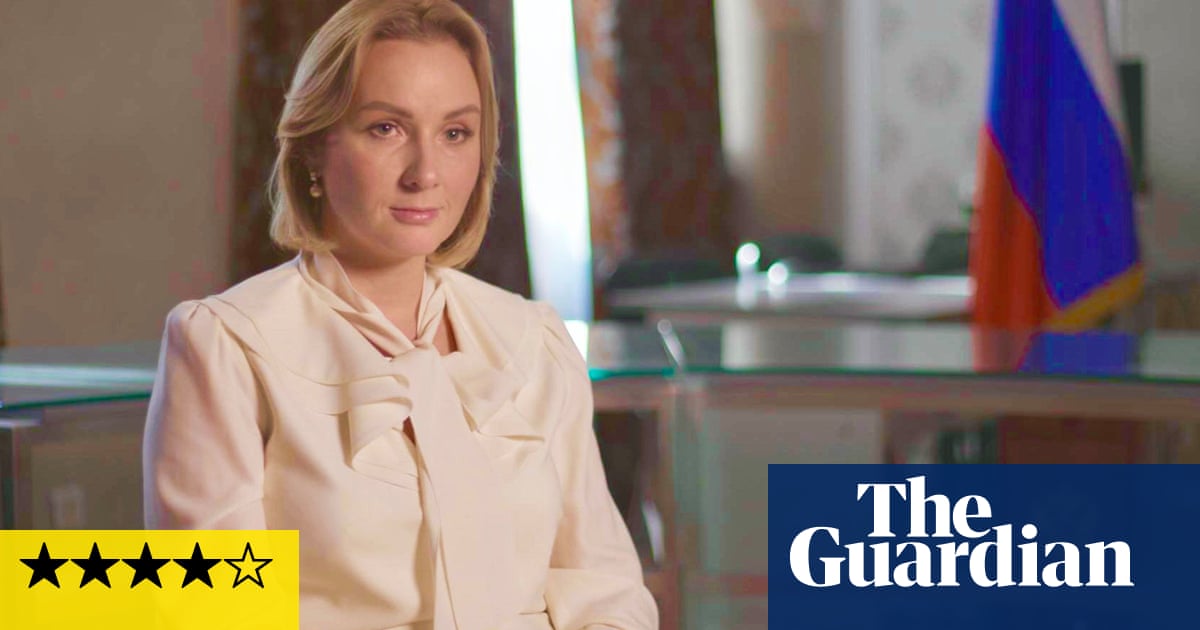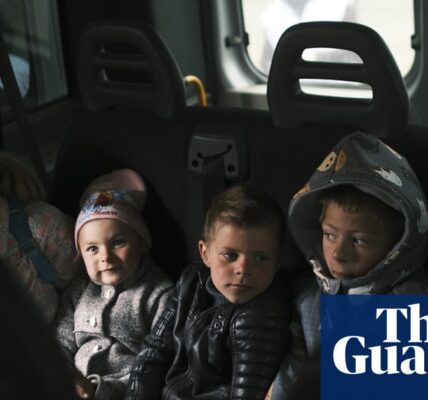The behavior of the Russian children’s commissioner, who laughed during the review of Ukraine’s Stolen Children, is alarming.

T
These are difficult and dark times, and the documentary “Ukraine’s Stolen Children” is one of several films bringing attention to the increasing number of tragedies plaguing the world. Shahida Tulaganova, an experienced journalist and filmmaker, shares the shocking tale of the numerous children who went missing in Ukraine in 2022, following Russia’s invasion.
In March, the ICC issued warrants for the arrest of Vladimir Putin and Maria Lvova-Belova, Russia’s commissioner for children’s rights, on charges of committing war crimes by illegally deporting and transporting Ukrainian children. In this documentary, Tulaganova delves into the issue by interviewing some of the affected youth who were taken by Russians, often to supposed holiday camps. She also speaks with their family members, caregivers, and individuals from a charity organization that has been working to reunite them with their families.
When Russian forces entered the Kherson region, 16-year-old Denis was living in an orphanage. The director of the orphanage, Volodymyr Sahaidak, remembers Denis as a kind and capable young man who looked after the younger children during the blockade. In line with other films about war, the use of phones in the film creates a sense of closeness, as we witness Denis discussing the mental challenges of living in constant fear of attack. Shortly after being taken away, Denis appeared on Russian state TV, covered in a Russian flag.
At the age of 14, Kostya shares that Russian soldiers aimed their weapons at him, claiming that Ukrainian militants were hiding in his family’s house. He recounts a tale of being captured and managing to free himself by untying his bound hands, as he had always dreamed of joining the special forces since he was young. However, when he finally escaped from the basement where he was held, his family had already left their home. It took several months before he was able to reunite with them.
There are a larger number of children who have been separated from their families and caretakers. Diana and Yana, two teenage sisters, along with their brother Nikita and another boy named Danil, were all sent to a “holiday camp” operated by the Russians. This was meant to be a temporary stay of a few weeks to ensure their safety and provide a respite from living in a war-torn area. However, those few weeks turned into several months.
Based on the accounts of the children Tulaganova conversed with, they were instructed to only speak Russian and were compelled to sing patriotic songs during inspections at the camps. They were also informed that their parents had left them and talks were underway about providing them with Russian documents or potentially being adopted.
However, numerous children were in a situation where their parents or caregivers were unsure of how to locate or bring them back due to the chaos caused by the war, such as disrupted communication lines. Alla, Danil’s mother, feels immense remorse for allowing her son to go to the camp. Oksana, whose son Nikita was separated from her due to a bridge being bombed, is unsure of where to even begin searching for him.
Both individuals receive assistance from a non-profit organization called Save Ukraine, which has the goal of reuniting families. Interestingly, we are given a close look at the organization’s efforts. Oksana, along with Denis’ godmother Olga, set out to find her son but encounter difficulties and are questioned along the way. Only one of them successfully reaches their destination. Due to certain circumstances, the camera crew is unable to follow them for the entire journey, but the depiction of their experience is vivid and disturbing. Save Ukraine provides guidance to family members on what to say and when, however they face intense and frightening opposition. Olga reveals that while in Minsk, she had to use speakerphone to make calls to Save Ukraine as two unidentified individuals in plain clothing listened in on her conversations.
An exclusive interview with Lvova-Belova, her first with British television, is even more remarkable. She dismisses the ICC arrest warrant and argues that it is just another ploy to tarnish Russia’s image. When questioned about the accusations of mistreatment and forced “re-education” at the camp, she laughs and says they are currently verifying the information. We also meet 17-year-old Fillip, who has been fostered by Lvova-Belova and now lives with her family. His interview, filled with praise and excitement, is conducted in the presence of Lvova-Belova’s press representative.
Ignore the newsletter advertisement
after newsletter promotion
This peaceful and persuasive movie evokes a sense of anger. It concludes with the acknowledgement that the exact number of children deported or relocated from Ukraine remains uncertain, but it does provide some specific figures. Numerous children have been repatriated, while hundreds are currently in Russian foster homes, but a significant number are still unaccounted for.
-
The documentary Ukraine’s Stolen Children was televised on ITV1 and can be accessed on ITVX.
Source: theguardian.com

